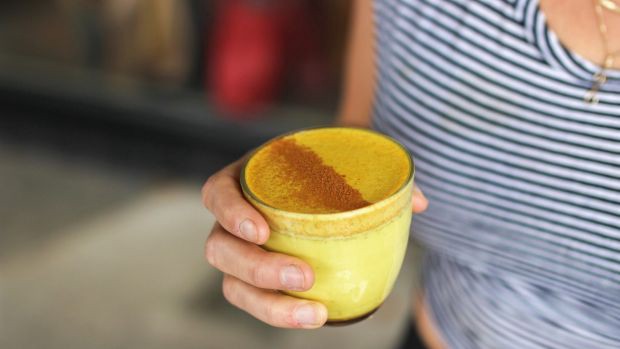Sorry, Turmeric Is A Lie
Put down the turmeric smoothie and walk away slowly.
If you sip a turmeric latte and tell your girlfriends it’s your superfood cure-all, put the mug down. While turmeric has been touted as a strong antioxidant with anti-inflammatory properties, researchers have a disappointing reality for you: it’s a fluke.
Before we get to the root of turmeric’s misgivings, let’s back up. Turmeric appeared around 500 B.C.E. in India as an essential element in the natural healing practice of Ayurvedic medicine. They inhaled burning turmeric as a decongestant, used the juice to dress wounds and rubbed turmeric paste all over their bodies to treat a shitload of ailments.

Like most ancient remedies, today’s foodie scene appropriated it. The ancient bright yellow spice found itself in Western culture by way of warm golden milk, cold-pressed juices and takes on Indian curries. Besides used as a cooking spice, believers consume turmeric to soothe joint stiffness, stop heartburn, balance mood, treat cancer and more.
Break down turmeric and you’ll find what scientists long believed responsible for the spice’s health benefits: the chemical compound and pesky trickster curcumin. Then why, despite previous studies and over a hundred clinical trials, hasn’t curcumin achieved drug status?
In a new study published in the Journal of Medicinal Chemistry, researchers labeled curcumin a pan-assay interference compound (PAINS). That’s fancy language for a compound that seems to have medicinal properties when it interacts with protein, only proven a fake later in failed clinical trials. When curcumin breaks down in the body, it reacts with other compounds and appears to take on those capabilities as its own. The researchers behind the study call curcumin “an unstable, reactive, nonbioavailable compound and, therefore, a highly improbable lead.” Ouch.
More than a dozen studies on curcumin were withdrawn, and more corrected. Researchers might find real health benefits in other chemicals in turmeric, but it’s not likely they’ll try soon. The time and funding previously dedicated to the spice and its low return is enough to drive scientists to focus on unexplored compounds instead.
Back to you, food and beauty crossover bloggers. Here’s the go-ahead to find the next New Health Trend You Need to Know. Feel free to Instagram the turmeric latte you just made — just don’t expect it to relieve the muscle pains from your early morning round of Soul Cycle.
